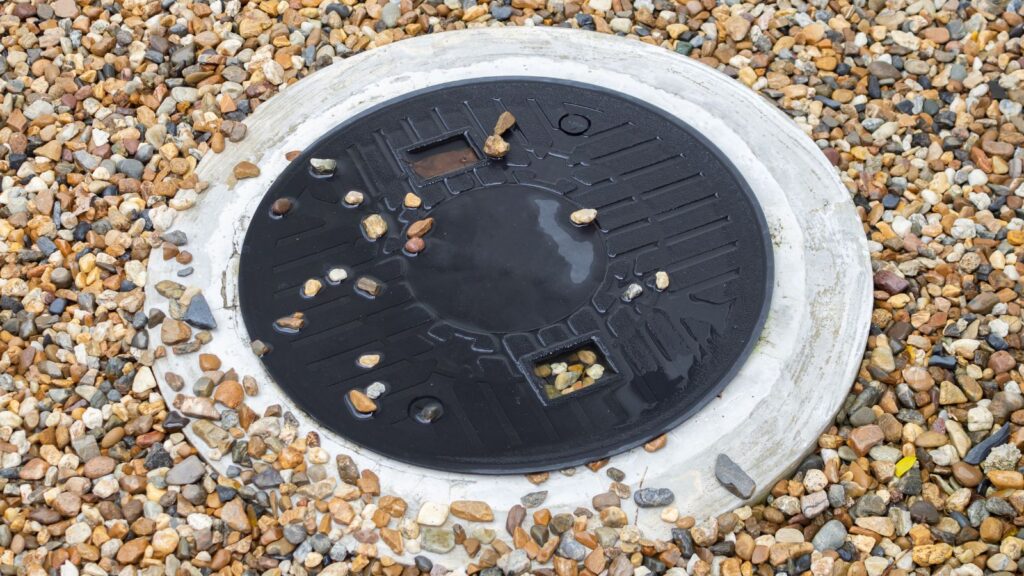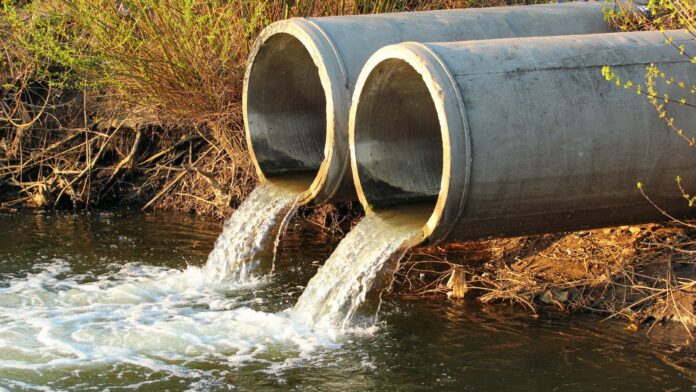Living off the grid brings a unique set of challenges, and one essential aspect often overlooked is sustainable wastewater management. Without proper sewage solutions, both our health and well-being can be negatively impacted.
In this comprehensive guide to exploring off-grid sewage solutions, we will delve into various options such as septic systems, greywater systems, composting toilets, lagoons, and much more.
We’ll also discuss how to choose the right solution for your specific needs while taking advantage of innovative technologies for eco-friendly waste disposal.
Key Takeaways
- Off-grid sewage solutions are essential for sustainable wastewater management in remote areas or eco-tourism camps.
- There are various off – grid sewage options like pit latrines, septic systems, composting toilets, lagoons, and constructed wetlands available to choose from based on site conditions and local regulations.
- Innovative off-grid sewage solutions such as biogas digesters, urine-diverting toilets, reed beds and self-contained sewage treatment systems provide efficient waste disposal with minimal environmental impact.
- Sustainable wastewater management is crucial for public health protection whilst promoting economic benefits and minimizing negative environmental impacts.
Off-Grid Sewage Solutions: The Basics
This section will discuss the different types of off-grid sewage solutions available, including pit latrines, greywater and blackwater management systems, septic tanks, composting toilets, sewage treatment plants, and lagoons.
Pit Latrines And Outhouses
Pit latrines and outhouses are some of the simplest and most time-tested off-grid sewage solutions. These self-contained structures separate waste from human contact by collecting it in a hole or pit beneath the floor.
Though these systems might seem rudimentary at first glance, they play a vital role in protecting public health and maintaining water quality in many parts of the world. By containing human waste within an enclosed area, pit latrines prevent contamination of nearby groundwater sources while also reducing unpleasant odors around living quarters.
To enhance their sustainability even further, some individuals incorporate elements such as lime treatment or solar-powered ventilation systems into their outhouses to manage odor concerns and hasten decomposition rates.
Greywater And Blackwater Management
Greywater and blackwater management are critical components of sustainable wastewater management solutions for off-grid living. Greywater is wastewater generated from activities such as washing clothes, dishes, or taking a shower, while blackwater includes sewage from toilets.
Proper greywater treatment, reuse, and recycling can significantly reduce water usage in off-grid systems. Technologies like constructed wetlands use plants to remove impurities from greywater before it’s discharged into the environment.
On the other hand, effective blackwater management involves proper disposal of human waste using septic systems or composting toilets.
Overall, selecting appropriate technologies for grey- and black-water management depends on factors such as site conditions, local regulations and codes, capacity needs, cost requirements, etc., which must be considered when choosing the best solution for your off-grid wastewater needs.
Septic Systems
Septic systems are a popular and effective off-grid sewage solution. They work by collecting wastewater in a tank, where solid waste settles at the bottom and liquid effluent rises to the top.
Although septic systems require regular maintenance and pumping, they are relatively simple to install and can accommodate varying levels of wastewater output.
Overall, septic systems offer an affordable and sustainable way for off-gridders to take care of their sewage needs without relying on traditional infrastructure.

Composting Toilets
Composting toilets are a popular option for off-grid living because they provide a sustainable waste management solution. These toilets use little to no water and turn human waste into compost that can be used as fertilizer for plants.
One of the advantages of using composting toilets is their ease of installation and maintenance. They do not require plumbing or electricity, making them ideal for cabins or remote locations without access to these utilities.
Additionally, they help conserve the water supply since flushing traditional toilets with potable water is often wasteful.
Sewage Treatment Plants
Sewage treatment plants are an effective off-grid sewage solution for those living in remote areas. These plants use a series of biological and chemical processes to treat wastewater before it is safely released back into the environment.
While more expensive than other options, they can handle large volumes of waste and provide reliable sanitation for communities.
In addition to being suitable for residential areas, sewage treatment plants are also used in eco-tourism camps that require environmental sustainability. They have proven effective at removing harmful bacteria and contaminants from the water supply while minimizing harm to local ecosystems.
Lagoons
Lagoons are an alternative to full septic systems as a way of managing wastewater in off-grid living situations. They can be less expensive and easier to maintain, but require adequate space and soil conditions.
Lagoons work by allowing the wastewater to undergo natural biological processes that break down pollutants. There are several types of lagoons with different construction requirements depending on factors such as climate, terrain, and local regulations.
For example, facultative lagoons are typically used in warmer climates while aerated lagoons may be more appropriate for colder temperatures. However, it is important to note that lagoons do have their own set of challenges including potential odor issues and groundwater contamination if not properly constructed or maintained.
Innovative Off-Grid Sewage Solutions
Explore innovative off-grid sewage solutions such as biogas digesters, urine-diverting toilets, reed beds, constructed wetlands and self-contained sewage treatment systems to take your sustainable wastewater management to the next level.
Biogas Digesters
Biogas digesters are an innovative way to manage off-grid sewage solutions. These systems use anaerobic bacteria to break down organic waste, producing biogas that can be used for cooking or heating.
This system is particularly useful in areas where wood or fossil fuels are scarce, making it an eco-friendly and sustainable option for those living off the grid. Biogas digesters come in different sizes, ranging from small home-based units to larger community-level options.
They also have the added benefit of reducing greenhouse gas emissions by capturing methane that would otherwise escape into the atmosphere.
Urine-Diverting Toilets
Urine-diverting toilets are a type of off-grid toilet that separates urine from other waste, allowing for more efficient and eco-friendly waste disposal. These toilets can be used in both residential and commercial settings and have the added benefit of providing a source of fertilizer for gardens or crops.
One popular example is the “Nature’s Head” toilet, which uses a compact design to fit into small spaces and separates liquid and solid waste for easy disposal.
Reed Beds
Reed beds are an innovative and sustainable off-grid sewage solution that utilizes natural biological processes to treat wastewater. They consist of a lined basin filled with layers of different materials, including gravel, sand, soil, and reeds.
One advantage of using a reed bed is that it does not require electricity or mechanical components to operate. This makes it ideal for remote off-grid locations where power sources may be limited or unreliable.
Additionally, they can handle large volumes of wastewater and are relatively low maintenance compared to other treatment options.
Constructed Wetlands
Constructed wetlands are a natural and cost-effective solution for treating wastewater in off-grid locations. These systems use plants, gravel, and sand to filter contaminants from the water.
They work by creating an environment where microorganisms break down pollutants in the water before it is released back into the environment. Constructed wetlands are particularly useful for remote locations that lack access to traditional sewage infrastructure.
They can be designed to handle both greywater and blackwater, reducing the impact of human waste on the surrounding ecosystem. Plus, they provide a natural habitat for wildlife and can add aesthetic value to any property.
Self-Contained Sewage Treatment Systems
Self-contained sewage treatment systems are reliable and portable alternatives to traditional septic systems. They are especially useful for those living in remote areas or operating eco-tourism camps.
One notable example is the Nature’s Head composting toilet. It separates liquid from solid waste before converting them into nutrient-rich compost through heat and air circulation.
This system eliminates any need for costly or complicated installations, making it perfect for off-grid cabins and tiny homes.
Overall, self-contained sewage treatment systems can be more cost-effective than septic tanks while also providing an eco-friendly solution for off-grid wastewater management.
Choosing The Right Off-Grid Sewage Solution
When choosing an off-grid sewage solution, it’s important to consider site conditions, local regulations, cost and maintenance requirements, water availability, and capacity needs.
Site Conditions And Terrain
The site conditions and terrain play a significant role in choosing the right off-grid sewage solution. It’s essential to consider natural drainage patterns, soil types, water table levels, and landscape features when selecting a waste disposal system.
Additionally, slopes on the land can impact your choice of wastewater treatment method since gravity is necessary for proper drainage flow. Constructed wetlands work well in flat terrains while lagoons work best on sloped terrains where gravity can facilitate the movement of wastewater to different stages of treatment.
Wastewater Output
One of the key factors to consider when choosing an off-grid sewage solution is the amount of wastewater that will be generated. This can vary greatly depending on the number of people living on the property, and their daily activities such as cooking, showering, and laundry.
For example, composting toilets are a great option for those who produce less than 60 gallons of wastewater per day, while larger properties may require a septic system or a self-contained sewage treatment plant.
Local Regulations And Codes
One important factor to consider when choosing an off-grid sewage solution is complying with local regulations and codes. This varies depending on the location, but it’s crucial to ensure that your system meets these requirements to avoid potential legal issues.
It’s also a good idea to check with your local health department or environmental agency for any guidelines or recommendations they may have. Adhering to regulations not only ensures compliance but can also help protect the environment and public health.
Cost And Maintenance Requirements
When considering off-grid sewage solutions, it’s important to consider the cost and maintenance requirements of each option. The initial cost can vary widely depending on the system chosen, but it’s important to also think about long-term maintenance needs.
For example, a composting toilet may have a higher upfront cost than a traditional septic system or pit latrine, but requires very little ongoing maintenance.
It’s also important to consider any additional costs beyond installation and maintenance. Some local governments require permits or inspections for certain systems, which could add additional expenses.
However, choosing an eco-friendly solution can provide economic benefits in the long run by reducing water use and lowering energy costs associated with wastewater treatment.
Water Availability
One important consideration when choosing the right off-grid sewage solution is water availability. Without access to water, any system will fail to properly function. It’s essential to assess your site for an adequate source of freshwater before choosing a wastewater management system.
In some cases, you may need to transport or collect water from nearby sources like rivers or wells. The amount of water available also needs to be considered as it determines the capacity of the chosen system.
If there isn’t enough freshwater for the selected wastewater management technique, you’ll need to consider alternative solutions. For example, composting toilets require no flush water and are ideal in areas where freshwater is scarce or expensive.
Capacity Needs
When choosing the right off-grid sewage system, it’s important to consider your capacity needs. This includes factors such as the size of your household, daily water usage, and waste output.
Additionally, if you are planning on hosting guests or running an ecotourism business on your off-grid property, you will need to factor in their wastewater output as well.
Overall, taking the time to properly assess your capacity needs will help ensure that you select the most effective and sustainable wastewater management solution for off-grid living.
Installation And Maintenance Of Off-Grid Sewage Systems
Proper installation procedures, regular maintenance and cleaning, and troubleshooting common problems are critical components of successfully implementing off-grid sewage systems.
Proper Installation Procedures
When it comes to off-grid sewage solutions, proper installation procedures are crucial for ensuring the effectiveness and longevity of the system. First and foremost, it is important to consider the site conditions and terrain, including soil type and slope.
The system should also be installed at a safe distance from any water sources or wells.
Once the site has been properly assessed, installation can begin with careful excavation to ensure that pipes are sloping correctly for optimal flow. Septic tanks should be buried according to local codes and guidelines, typically about 2-3 feet below ground level.
Regular maintenance and cleaning are necessary for the proper functioning of off-grid sewage systems as well. This includes regular pumping of septic tanks every few years depending on usage levels, as well as routine inspections for leaks or damage.
Regular Maintenance And Cleaning
It’s essential to maintain and clean off-grid sewage systems regularly to prevent costly repairs and health hazards. Septic tanks, composting toilets, and other wastewater management solutions require maintenance procedures that vary based on the system type.
Maintenance typically involves checking for clogs, performing pump-outs when needed, monitoring tank levels, inspecting pipes for damage or leaks, and cleaning filters or screens.
Maintenance also includes keeping a record of service dates and any issues encountered during inspections. Failing to perform regular maintenance may result in overflows or backups which harm the environment as well as human health.
It’s crucial to rely on certified technicians who can diagnose problems early enough before they escalate into emergencies requiring expensive repairs.
Troubleshooting Common Problems
Maintaining off-grid sewage systems can be challenging, and problems may arise from time to time. Some common issues include clogged pipes, leaks, unpleasant odors, and system backups.
If you encounter any of these problems with your system, there are a few things to check before calling in professional help. First, ensure that the tank is not full and needs to be pumped out.
Sometimes blockages in pipes or tanks can be cleared by using an enzyme-based cleaner or manually removing the obstruction.
Regular inspections and maintenance are essential to keep any off-grid sewage system operating effectively. Always follow the recommended maintenance schedule for your particular system to avoid common problems like those mentioned above.
Benefits And Importance Of Sustainable Wastewater Management For Off-Grid Living
Sustainable wastewater management for off-grid living provides economic, environmental, health, and social benefits that can contribute to a better quality of life and a healthier planet.
Economic Benefits
One of the significant advantages of adopting sustainable wastewater management solutions for off-grid living is the economic benefits. Implementing ecofriendly treatment systems like composting toilets, greywater irrigation systems, and septic systems can help save money in the long run as they do not require continuous utility services from external sources.
For instance, a composting toilet helps recycle waste into fertilizer that can be used to grow crops or gardens.
Additionally, choosing the right wastewater management system depending on site conditions and output volume could lead to reduced installation expenses. Lagoons are cost-effective options with lower upfront costs than traditional full septic systems for those who don’t have access to enough funds yet want effective organic waste disposal solutions.
Alternative economical approaches such as adaptions of humanure technology also provide cheaper alternatives to expensive conventional sanitation technologies while delivering practically similar results when executed correctly with safety in mind.
Environmental Benefits
Off-grid sewage solutions offer a wide range of environmental benefits that make them essential for sustainable wastewater management. For instance, using composting toilets or onsite greywater treatment systems can reduce water pollution and protect aquatic ecosystems.
Additionally, recycling human waste through composting and other methods helps to conserve natural resources by keeping nutrients in the soil instead of releasing them into the environment.
Off-grid sewage systems also help to minimize greenhouse gas emissions by reducing the need for energy-intensive sewer infrastructure and transportation costs associated with conventional wastewater treatment plants.
Health Benefits
Off-grid sewage solutions not only benefit the environment but also provide health benefits for individuals and communities. Proper wastewater management greatly reduces the risk of waterborne illnesses, such as cholera, dysentery, and typhoid fever.
Composting toilets eliminate harmful chemicals and bacteria from waste material, creating nutrient-rich fertilizer for gardens.
Additionally, off-grid sewage solutions can improve air quality by reducing odors and eliminating emissions from transportation trucks that collect and dispose of waste in traditional sewer systems.
Social Benefits
Off-grid sewage solutions don’t just benefit the environment and your wallet; they also have social benefits that are worth considering. For example, sustainable wastewater management can promote more environmentally conscious behavior and create a sense of community around off-grid living.
In addition, adopting eco-friendly wastewater treatment methods can improve overall health and hygiene for both individuals and communities. By properly disposing of waste, you reduce the risk of exposure to harmful bacteria and contaminants which can lead to illness or disease.
This is especially important in remote areas where access to medical care may be limited.
Factors To Consider When Adopting Off-Grid Sewage Solutions
Choosing the right off-grid sewage solution is critical for sustainable wastewater management. When considering which option to adopt, there are several factors to consider, including site conditions and terrain, wastewater output, local regulations and codes, cost and maintenance requirements, water availability, and capacity needs.
Additionally, it’s essential to understand the environmental impact of your chosen system. Composting toilets generate rich fertilizer while utilizing minimal water resources; however lagoon systems have their downsides such as odors and leakage into nearby freshwater sources.
Conclusion
In conclusion, off-grid sewage solutions provide an eco-friendly and cost-effective way to manage wastewater for those living off the grid. With a variety of options like composting toilets, septic systems, and lagoons available, individuals can choose the best solution that fits their needs based on site conditions, wastewater output, local regulations, and maintenance requirements.
Off-grid living communities including remote cabins or eco-tourism camps must adopt environmentally sustainable wastewater systems to ensure long-term economic benefits, environmental protection and health advantages.
What are off-grid sewage solutions and why are they important?
Off-grid sewage solutions refer to systems that treat wastewater in a sustainable way without relying on centralized infrastructure. Off-grid solutions can be especially important in rural or remote areas where access to such infrastructure is limited or non-existent.
What types of off-grid sewage solutions are available?
There are several options for off-grid sewage treatment, including composting toilets, septic systems, and greywater systems. Each system has its own advantages and requirements depending on the specific needs of the user.
How do I choose the right off-grid sewage solution for my needs?
Choosing the right off-grid sewage system depends on a variety of factors like local regulations, climate conditions, soil type, property size, water usage habits and budget constraints among others. Consulting with an experienced professional can help you determine which solution is best suited for your unique circumstances.
How does sustainable wastewater management benefit the environment?
Sustainable wastewater management reduces pollution by treating water before it re-enters natural waterways; decreases resource consumption through nutrient recycling; conserves energy used for waste-water transportation & processing while providing communities with safe living spaces. In addition to environmental benefits – sustainable wastewater management also provides economic opportunities by supplying affordable resources (such as fertilizer) which increases self-sufficiency amongst individuals/groups using alternative methods opposed traditional disposal via sinks/toilet bowls – ultimately contributing positively towards fulfilling global targets set forth under United Nations’ Sustainable Development Goals (SDGs).




